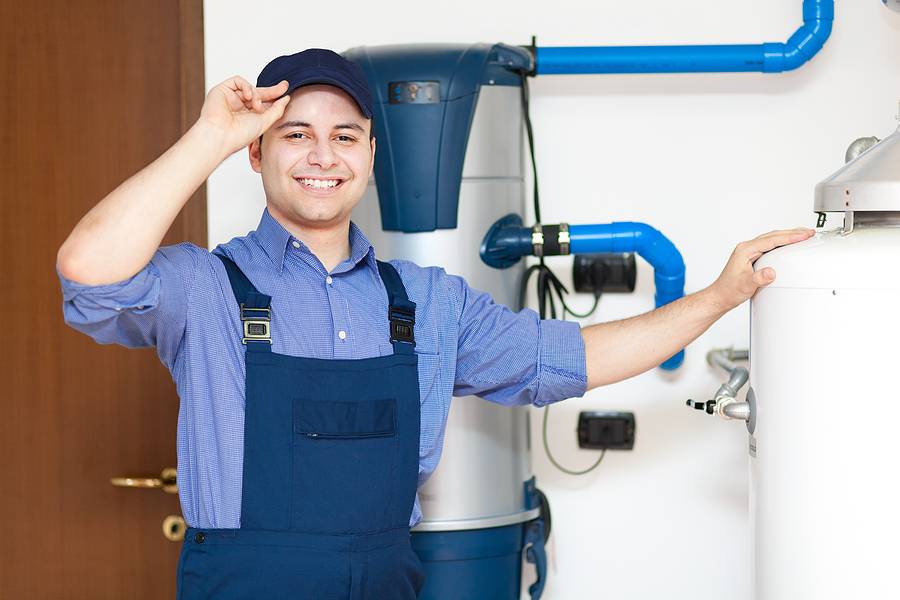Call This Sunday to Get $50 OFF
Call This Sunday to Get $50 OFF
Call This Sunday to Get $50 OFF
Call This Sunday to Get $50 OFF
Tankless water heaters have quickly gained popularity among homeowners over the past several years due to their promise of energy efficiency and cost savings. However, are tankless heaters truly more energy-efficient? In this article, we explore their intricacies compared to their tank counterparts. High Speed Plumbing has significant experience with tankless water heater installation. We can help you choose the best solution for you.

Begin with understanding how tankless water heaters function. In contrast to traditional storage tank water heaters that store and heat large volumes of water at one time, tankless heaters only heat what is required at that moment in time - when someone switches on a hot water tap, cold water flows directly through pipes into their unit for heating by either gas burners or electric elements; when heated, it then returns out through another pipe to flow back out and finally through to your tap as hot water.
Tankless water heaters don't suffer from standby heat loss as traditional tank water heaters do; standby heat loss occurs when heat escapes from stored water in tanks even when not being utilized, meaning tankless heaters provide hot water more efficiently and with reduced waste.
According to research by the U.S. Department of Energy, tankless water heaters outshone traditional tank heaters regarding energy efficiency. Tankless heaters can save an impressive 34% in energy costs when heating 41 or fewer gallons per day of hot water for homes using tank heaters alone versus using more hot water daily; for larger households however, tankless models still prove superior, their savings might not be quite so significant.
Although tankless water heaters may be more energy-efficient than their tank counterparts, their upfront costs tend to be greater. Conversely, tankless water heaters can last up to 20 years while their counterparts only 10.
Installation costs for tankless water heaters can differ widely depending on factors like their type, size, and the complexity of installation. Homeowners should seek guidance from licensed professionals when selecting an apt water heater solution suited to their home and budget.
If you're hearing a rumbling sound from your basement, don't ignore it. At High Speed Plumbing, we've seen everything from thermostat…
Running out of hot water at your business can mean angry customers, health code violations, or a full operational shutdown. Restaurants,…
Are you dealing with a leaky faucet, low water pressure, or a broken handle? If so, you might need a faucet…
A properly working garbage disposal makes kitchen cleanup easy and efficient. If your disposal is acting up—making loud noises, leaking, or…
When your main water line has a problem, it can cause a lot of trouble for your home. Leaks, low water…
Are you dealing with an old, leaky, or broken toilet? If so, it may be time for a toilet replacement in…
If you’re concerned about the quality of your water, water filtration installation in Pomona is a wise choice. A good filter…
Traditional snaking or chemical drain cleaners can harm pipes and aren’t always effective at reaching deep blockages…
Tankless water heaters offer unrestricted hot water at any given moment due to not having an on/off switch as traditional tank water heaters do; traditional tanks run out after certain use amounts, which can become frustrating for homeowners. Tankless heaters, on the other hand, stay supplied after only certain amounts have been used up, which makes for hassle-free use by homemakers and tenants alike.
If you are considering installing a tankless water heater in your home and have a budget, consulting with a professional plumber to select an optimal model can make all the difference in finding an appropriate size and type. Professionals will assess your home's hot water requirements before advising on which heater would provide optimal results for both efficiency and budget needs.
Tankless water heaters may offer greater efficiency; however, they might only sometimes be the right solution for every homeowner. Properties that experience high hot water usage could require multiple tankless units or upgrading gas lines to accommodate one, adding to installation costs and potentially increasing usage costs.
Tankless water heaters offer many advantages over their tank counterparts when it comes to energy efficiency and flexibility, such as increased savings over time and their higher initial costs; however, before investing too heavily, professional guidance must be sought as far as which model best matches both your home and budget requirements.
At High Speed Plumbing, we understand the decision to purchase and install the appropriate hot water tank is an important one. That is why our team of licensed professionals is focused on finding you an optimal solution that suits your home's size and type requirements - traditional tank heater or tankless. They will assist with finding an adequate size/type combination while offering installation cost estimates and efficient installation processes - we guarantee it! With their commitment to excellent service and customer satisfaction, High Speed Plumbing stands ready to meet all your hot water tank installation needs.